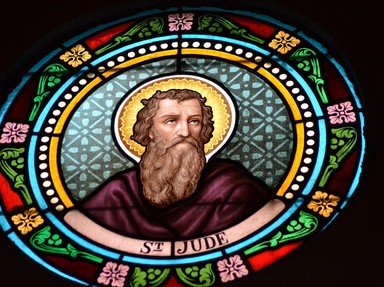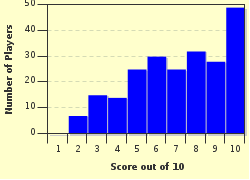Quiz Answer Key and Fun Facts
1. Jude begins his letter by describing himself as "a brother of James". He has also, traditionally, been seen as the brother of which of the following?
2. The main text of the letter begins with a warning about certain individuals who have infiltrated the church community. For what are these people criticised?
3. You may not recognise it as such, but the passage from verse 4 to verse 19 is an example of a Jewish form of exegesis. By what name is this known?
4. Jude uses several Old Testament examples to show that God takes action against immoral people with whom he is displeased. Which of these stories is among them?
5. Which of the following early Christian practices does Jude say has been debased by the presence of the evildoers?
6. Which of these Old Testament characters, described in the book of Genesis as having "walked with God", does Jude quote from in order to speak about the second coming of Jesus?
7. "In the last times there will be scoffers who will follow their own ungodly desires." (Jude v. 17)
Jude's use of these words appears to suggest that he believed the second coming of Jesus to be imminent. To whom does he attribute the quotation?
8. Having issued his warning, Jude gives himself just four verses in which to fulfil his original intention "to write to you about the salvation we share" (Jude v. 3). Firstly, he encourages his readers to nurture their own spirituality in three different ways. Which of these is NOT among them?
9. Jude then goes on to encourage his readers to "snatch others from the fire and save them" (Jude v. 23). He urges a degree of caution, though, lest they become adulterated by the things of the world. What evocative phrase does he use at this point?
10. "To him who is able to keep you from _______ and to present you before his glorious presence without fault and with great joy..." (Jude v. 24)
Which word is missing from the doxology with which Jude concludes?
Source: Author
glendathecat
This quiz was reviewed by FunTrivia editor
CellarDoor before going online.
Any errors found in FunTrivia content are routinely corrected through our feedback system.

